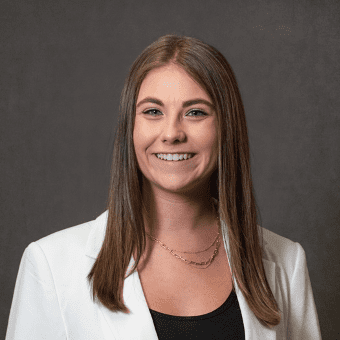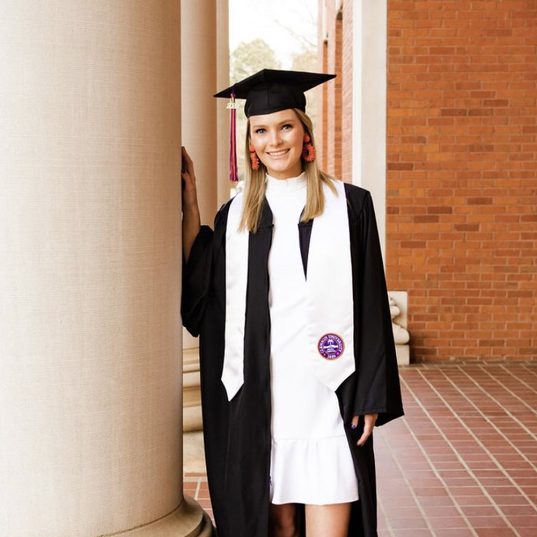Students studying to be teachers in the Clemson University College of Education are, by definition, preoccupied with the learning process. It’s an unwritten prerequisite for education majors to be concerned with learners of all ages, backgrounds and interests, even when those learners happen to be their fellow classmates on the Clemson campus.
This concern for the success of others has made Clemson education majors a natural fit as academic mentors for Clemson Athletic Academic Services. Mentors help student-athletes develop the skills needed to earn a Clemson degree by implementing tailored academic success plans in a one-on-one setting to help student athletes gain academic independence and self-efficacy.
According to Jeff Carey, associate director of educational services for the Nieri Family Student Athlete Enrichment Center, the services that strategic mentors provide are varied and highly important to academic success. They can aid student athletes in time management, course management, organization, research-based learning strategies and study skills, but Carey said the experience usually ends up being a “win win” for both mentor and mentee.
“Many of our strategic mentors are undergrads in the College of Education or graduate students in the College’s counselor education program, and they have worked well in translating their skills and behaviors to the student athletes with whom they work,” Carey said. “The mentors often rely on this experience to easily transition into practicums, student teaching, full-time teaching and other professional endeavors.”

Katelyn Kerce, an early childhood education major in the College of Education, said she has gained a great deal of insight into learners’ individual differences and techniques that could be applied to all levels of education. She said she has learned to vary her approach to each student after establishing some common ground and a general sense of how the mentee sees their own strengths and weaknesses.
Getting this baseline allows Kerce to prioritize what students need to work on most to get the most out of their session. Getting a handle on a week overall allows a mentee to learn how to better prioritize or work on their time management, which in turn improves the effectiveness of each mentoring session.
“I have seen how important it is to look at the individual student and their learning style,” Kerce said. “I have gotten to meet and work with so many different personalities each with all their own strengths and weaknesses. Through this job, I have learned what it really means to be a mentor to someone and not every mentee needs help in the same area.”
Kerce fondly remembers the time she spent with a student athlete who struggled with writing. She helped them break down the problem into individual parts to tackle and helped the student athlete understand that getting thoughts down and then polishing them later was an effective strategy. As they grew as a writer, Kerce could then tackle more fine-point grammar and even email etiquette.
Rebecca Carnes, a 2022 alumni of the College of Education’s special education program, also served as a mentor, and the mentee that sticks out in her mind most struggled with a language barrier. The student would memorize notes without understanding content, but Carnes worked with them on communicating with professors so that they could better understand both instruction and content. By the end of the semester, the student athlete would not hesitate to communicate with professors and grew comfortable enough to use other resources and study tools to ensure they were understanding content and not relying on memorization.

Carnes said her experience revealed itself to truly be a two-way street where both mentor and mentee benefitted. Through mentoring, she felt more motivated to practice what she preached to the mentees, from updating her calendar regularly and managing her own time wisely to completing assignments and improving communication with her own professors.
Carnes enjoyed sharing the tips and tricks with mentees that had helped her during her time as a student, and she said it was fulfilling to see them putting these skills to use.
“My experience as a mentor has only further validated my decision to go into the teaching field,” Carnes said. “Overall, I find it rewarding to share skills and knowledge I have with others.”
According to Carey, mentors undergo 10-plus hours of intensive, focused training before and during each semester to gain insight into learning strategies, engaging reluctant learners and differentiated instruction to help a student athlete’s personal and professional development. Kerce and Carnes both said that Clemson Athletic Academic Services provided a great deal of flexibility around their class schedules to ensure they got consistent, adequate time with mentees and enough time to juggle their own studies.
If interested in becoming an academic mentor for student athletes, contact Carey directly (carey3@clemson.edu) or complete an online application here.
Get in touch and we will connect you with the author or another expert.
Or email us at news@clemson.edu

